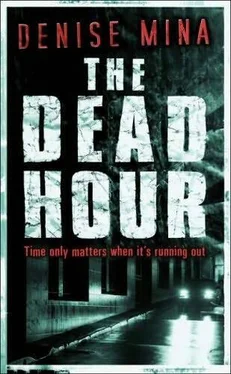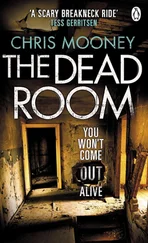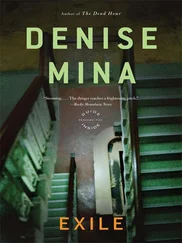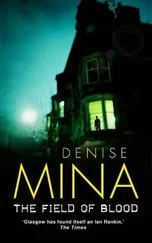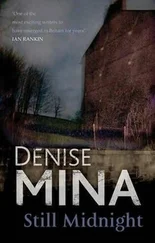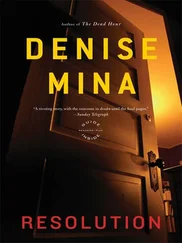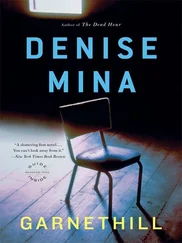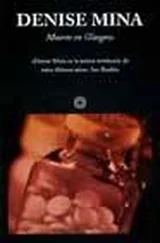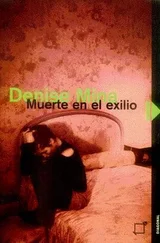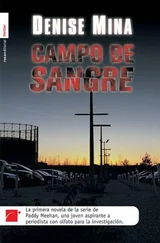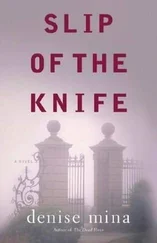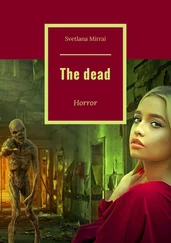Billy and Paddy had never developed a workmates’ rapport of comforting lies. The police radio was on all the time, forming a wall of white noise that stopped them talking in anything more than staccato bursts. They never spoke long enough to let Billy hint that his son was basically a genius who hadn’t found his niche or Paddy suggest that her weight was a bit hormonal. All that lay between them was a raw stretch of truth. At least they were kind to each other. It would have been unbearable otherwise.
“Hey, you’ll like this one,” Billy said, turning the radio down for a second. “What’s a domestic altercation?”
“I don’t know, Billy, what is a domestic altercation?”
“A fight in a hoose in Bearsden.” He turned the radio back up and smiled at her in the mirror, telling her it was okay.
She looked sadly down at her hand as it uncurled in her lap. Her palm had blood on it. “You’re right, Billy, I do like that one.”
She needed the money. Her father had been unemployed for two years. There were four children living at home and she was the only one bringing in a wage. She was the youngest and now the major earner. It gave her an unspoken veto in family decisions; her mother told her how much every item in the shopping cost and emphasized her frugality with food. It left Paddy with nothing for herself and she couldn’t fathom how to rectify the power imbalance at home. Still, the Meehans were relatively well off: one in three adults was unemployed in many parts of the city. Her mother wouldn’t notice the blood on the note as long as she left it to dry and brown.
“Was it a couple?” Billy wound his window down an inch, dropping the end of his cigarette out of the crack. It bounced off the sill, giving off a burst of red sparkles, before disappearing over the edge.
“She had blood on her. I don’t know if we should have left her there.”
“Don’t feel too bad. They’re not like us, rich people.”
“Aye.”
“She could leave him if she wanted.”
“So I suppose.”
The domestics they usually saw were in tiny flats on sink estates, public events of necessity because the couples had to go out into the street to get a good swing at each other. Husbands and wives could languish on the council list for years while they waited for separate houses to come up, festering in small rooms. Blowups were inevitable.
Billy caught her eyes again. “We gonnae phone that story in, then, or just leave it?”
If she didn’t think Billy had seen her take the money, she would have moved on to the next call and the next incident but she didn’t want him to think badly of her.
“Okay,” she said. “Let’s find a phone box.”
“Then we could try up at Easterhouse,” suggested Billy, letting her know that he doubted the story would make it to print. “There’s been a lot of swordplay in Barrowfield as well.”
All over the city nutters and gangsters were getting hold of machetes and swords and claymores and attacking each other. Sword fights had been going on for years and the moral panic they generated had been mined to death. It was a tired story but it was still a story.
“Aye, some bastard must be killing somebody somewhere,” said Paddy, hating her job and all the places it took her to.
When Paddy left work the sun still wasn’t due to rise for three hours. The few early-morning commuters on the street scurried along, heads to chests, keeping warm and keeping going, determined as clockwork mice. She was the only person sauntering through the icy city center, head up, the only person watching. She had discovered that in the mornings, particularly when it was dark, no one looked up, they scurried along with their heads elsewhere, rehashing fights or rehearsing their day ahead, sometimes talking to themselves. She alone was present in the street, alone in the fleeting moment.
She walked slowly. She didn’t want to get to Sean’s too early or she’d have to sit while his mum walked around in her slip and skirt and ate her breakfast, passing on stories, most of them impliedly malicious rumors about women in the parish.
Taking a long, wandering way down to the train station, Paddy doubled back up Albion Street and crossed the Siberian expanse of George Square. She was warm in her green leather. It was a knee-length fifties coat in soft green with a round collar and three big green buttons. It was a jumble sale buy, bought for a pound, made of buttery calfskin. Best of all it hung straight at the back with no waisting at all and disguised her bum a bit. It was roomy enough to allow for sweaters and a couple of scarves underneath. She slowed to a stop, pulling her red scarf up from the back of her neck to cup her head, covering her ears to stop the icy wind giving her earache.
A man in a green boiler suit and heavy work boots hurried across her path. As she watched him make his way toward the city chambers it occurred to her why she liked green so much: it was because of Betty Carson and Paddy Meehan’s prison release day. She hadn’t associated the thought before. Maybe that was why she’d been so drawn to the green sleeve on the rack at the jumble sale.
Patrick Meehan’s story was through her like weft through a weave. Telling details came to mind at the most unlikely times, bubbling up from her subconscious just when she was least expecting it.
Paddy Connolly Meehan was a career criminal, a small-time safe blower who had spent more of his life in prison than out of it. If he wasn’t cooking gelignite in frying pans in deserted tenements he was boasting about his exploits in the Tapp Inn. He had been found guilty of a high-profile murder when Paddy was just a child and the accident of their names meant that she followed the story all through her childhood, hearing before most people in the city that he was innocent, that the real villain had tried to sell his story to the Sunday papers, that a famous journalist was writing a book about the case. Growing up faithless in an obsessively Catholic family, Paddy looked to the outside world for models on how to behave, and somehow she’d replaced the New Testament with Meehan’s story. It wasn’t that unusual a thing to do, she realized: many failed Catholics became Marxists because of the perfect fit of mental infrastructure. Both had a single text and their own saints and fallen heroes. Both demanded time and money and evangelizing and both looked forward to a future day when justice would superabound and the meek would inherit the earth.
She had become obsessed with the Meehan story, finding bravery and dignity there, nobility and perseverance, integrity and loyalty. The only detail spoiling it for her now was Paddy Meehan himself: after his pardon he stayed in Glasgow, hanging around the pubs and telling his story to anyone who’d listen, falling out with journalists and barmen and everyone. He lived past his glory moment and couldn’t stay a hero in the workaday mess of getting by.
He was the reason she became a journalist, why she wanted the crime desk and saw glory and dignity in a job most would see as a career compromise.
A green coat.
In Paddy’s imagination Betty Carson’s flame-red hair was brilliant against the cream close wall, her skin as pale as white bread. Betty and Patrick Meehan were each eighteen, both taking shelter in the same dark close, waiting for the rain to go off. They spoke for a while and he walked her to the bus stop, waiting with her, watching her wave from the retreating tram with his heart beating loudly in his throat.
Betty was from good people. Her staunchly Protestant family were surprised when she came home a few months later and announced that she was married but, in a bigoted city, they were open minded and accepting of the young Catholic man. They gave Meehan every chance to do the right thing. Each time he came home from prison they welcomed him, expecting it would be different this time because he said so.
Читать дальше
